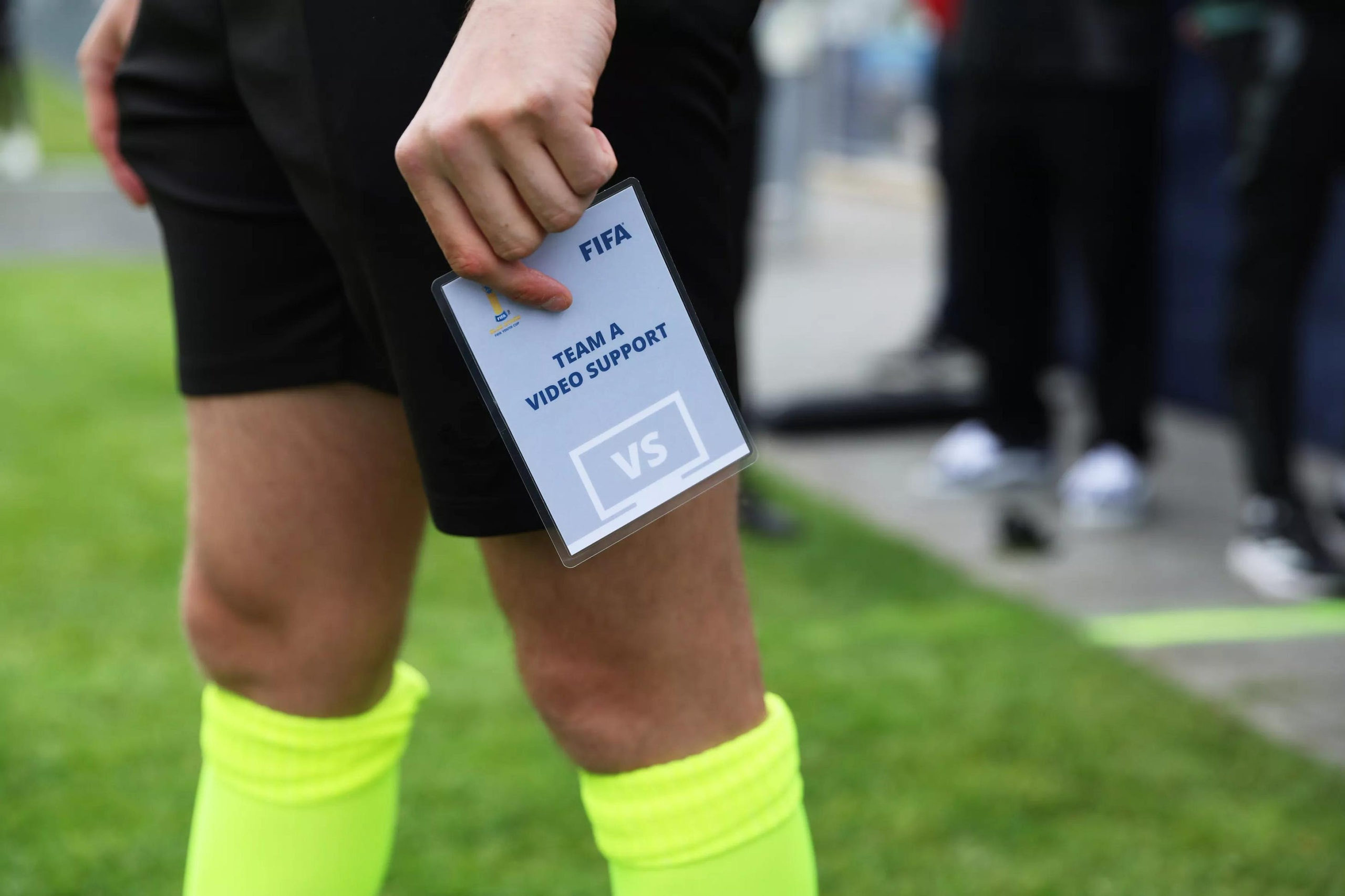What is football video support and why it could revolutionize refereeing

Football Video Support, or FVS, was introduced earlier in the year and is a new review system by FIFA that aims to make officiating support accessible to leagues that are unable to implement the Video Assistant Referee (VAR) system.
VAR has reshaped how football’s critical decisions are reviewed (for better or worse, that’s another conversation), but the cost and complexity make it inaccessible for smaller associations. In contrast, FVS offers a simpler approach—empowering team coaches to initiate limited reviews without needing dedicated video officials.
Unlike VAR, which relies on a separate team of video match officials to check incidents, FVS takes a streamlined approach. FVS applies only to clear and obvious errors or serious missed calls in four specific cases: goals, penalties, direct red cards, and mistaken player identity.
Once the referee makes a call, each team’s head coach has the option to challenge the decision by signalling to the fourth official with a review card. Each team is allowed two challenges per match, and if a challenge is successful, the team retains that review for future use. This system mirrors “challenge” rules in other sports like American Football and Basketball, giving coaches a strategic option to use their reviews wisely.
As the FIFA statement notes,
“the onus falls on the two head coaches, who will be allowed to make a limited number of review requests per match when they feel there has been a clear and obvious error in match-changing incidents.”
The fourth official then informs the referee, who will consult replay footage to confirm or overturn their decision based on clear evidence.
During a review, the referee accesses footage on a pitch-side monitor, assisted by a review operator. The limited number of cameras available to FVS may sometimes mean inconclusive footage, in which case the referee’s original call remains. This streamlined system avoids many of the logistical requirements of VAR while still providing coaches the chance to correct game-altering errors.
FIFA has already tested FVS in youth tournaments, including the Blue Stars/FIFA Youth Cup and the U-20 Women’s World Cup in Colombia. The trials have received positive feedback, with FIFA’s Head of Referees, Pierluigi Collina, calling the experience “very, very positive.” The trials tested various setups, from human-operated to automated cameras, providing insights on how FVS can be adapted for different environments.
In the U-20 Women’s World Cup, for example, FVS was used effectively when Australia’s goal was disallowed following a fault in the buildup. FIFA describes FVS as “more affordable technology that can be used to review the same kind of incidents as those covered by VAR.” Collina emphasized FIFA’s commitment to continuous trials, noting, “We hope to be able to give all of you who have indicated an interest in the possibility to implement this system in your competitions.”
The ability for coaches to proactively call for reviews marks a shift in game dynamics. Rather than relying on automated video officials, coaches can advocate for their team in critical moments, adding a new level of strategic depth to the game. The flexibility of FVS even extends to the number of cameras required, with FIFA indicating that setups as simple as one to four cameras are sufficient. As FIFA’s statement explains,
“While the VAR system has been adopted in over 200 individual competitions globally… FIFA has received numerous requests from member associations who want an alternative, cost-effective way to support match officials with technology.”
While FVS is unlikely to replace VAR in the top leagues, it offers a valuable solution for those seeking alternatives to the full VAR setup. FIFA is committed to refining the system, continuing trials, and assessing feedback from teams and officials. For leagues interested in improving officiating without high costs, FVS could be a groundbreaking option that enhances fairness and accessibility.
Though there’s no timeline yet for FVS implementation in top-level competitions, its early success hints at a future where FVS or at least some of its features could find their way into the leagues we love watching.
The challenge feature brings an interesting dynamic to football, and it could be a welcome addition to VAR decisions as well. Allowing coaches a say in certain reviews adds an element of strategy and transparency to the process, and considering how long some decisions take, a quick word with the coach wouldn’t hurt.
We’ve all witnessed questionable VAR calls, so it will be fascinating to see how and when coaches choose to use their challenges and when they decide to hold them back for tactical reasons. I assume FIFA would argue that challenges are not necessary because VAR is supposedly fine but I think we can all agree that although in theory, it should be fine, the execution needs some serious fine-tuning.
Source: FIFA





